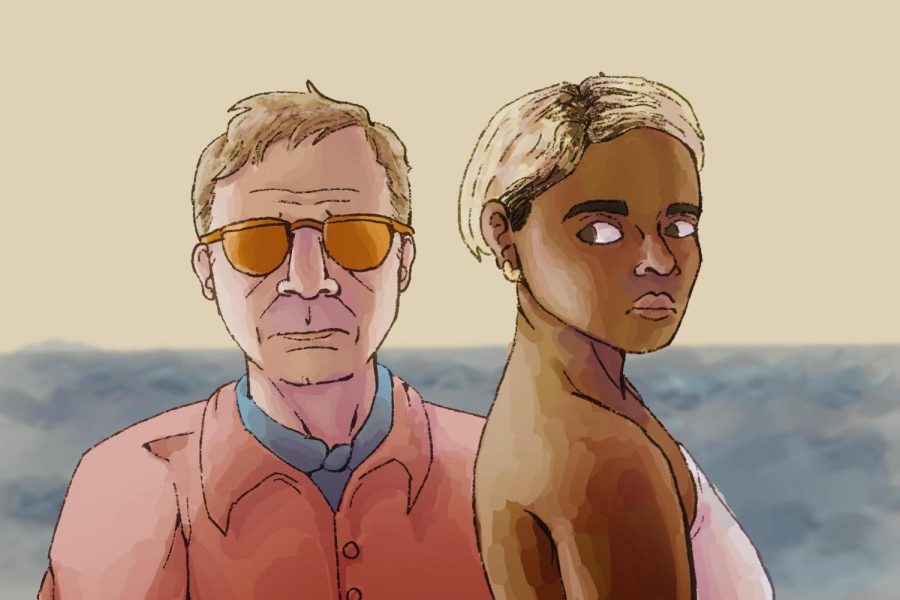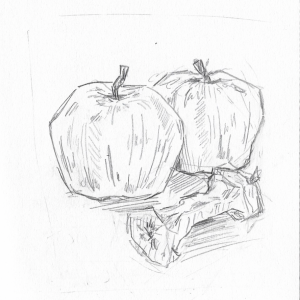Glass Onion is a Stunning Mystery of Many Layers
4/5 Falcons
January 16, 2023
Glass Onion, the highly-anticipated sequel to the beloved 2019 whodunit Knives Out, has finally come to theaters with a new murder, group of suspects, and twists and turns.
Once again, Daniel Craig stars as the world’s greatest detective, Benoit Blanc, seemingly back to solve a new mystery. The all-new ensemble cast includes caricatures of the modern-day one percent. At the center of the onion is Miles Bron (Edward Norton): billionaire and entrepreneur. Surrounding him is a group of high-achievers who call themselves “the disruptors.” Lionel Toussaint (Leslie Odom Jr.) is an ambitious yet pragmatic scientist. Duke Cody (Dave Bautista) is an alpha male Twitch streamer living in his mom’s basement. With him is his buoyant yet troubled girlfriend, Whisky (Madelyn Cline). Claire Debella (Kathryn Hahn) is an up-and-coming U.S. state governor. Birdie Jay (Kate Hudson) is a problematic airheaded influencer and style guru accompanied by her quiet and scrambling assistant Peg (Jessica Henwick) with plans of her own. For viewers familiar with Knives Out, a similar pattern can be noticed: all these friends owe their success to Miles—they depend on him. That is, of course, except for the mysterious Cassandra Brand, effortlessly played by Janelle Monae.
The group gathers on a Greek island for one of Miles’ annual get-togethers, with one big twist: Miles plans a Clue-style murder mystery party for his friends to solve. It will all be fake, of course. That is, until the murder mystery becomes all too real in an Agatha Christie-esque turn of events.
Glass Onion delivers on the promise of an incredible cast. Janelle Monae’s performance as Andi is particularly worthy of praise, and Daniel Craig refines Benoit Blanc’s caramel southern drawl into something more believable, but with the same adorable parody.
Like with many whodunits, the suspects are all extremely wealthy. In the original Knives Out, it was old New England money and the fabricated idea of “self-made.” In Glass Onion, there is much of the same, but with a more new-age opulence. Like Knives Out, Glass Onion has issues of class brought up—this time, it relates to who gets the credit, fame, and wealth of innovation, and the lengths people will go to maintain status.
The first two acts are thrilling and humorous enough to have the entire audience laughing loudly. However, the movie struggles in its confusion. The story seems to end up bogged down by the pressure of the genre, resulting in an unsatisfying last act. The “last hurrah” and striking climax failed to deliver on the aspect of commentary that critiques the issue, instead going for a finale that serves as more of a spectacle.
The draws of Knives Out were many: stellar performances across the board, a plot that twisted from whodunit to thriller and then back again, and the witty, modern writing that Knives Out excelled at. Whether a fan of Knives Out or not, Glass Onion is worth a watch when it comes to Netflix on December 23rd.










